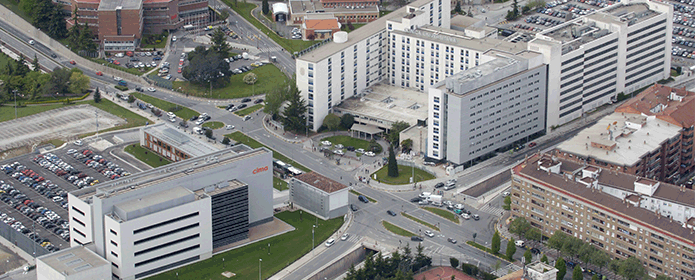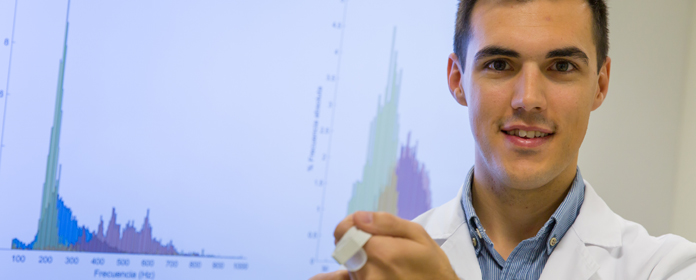20021108-Según un experto norteamericano, la apnea infantil se ha reducido un 50% gracias a que los bebés duermen boca arriba
According to an American expert, infant apnea has been reduced by 50% thanks to babies sleeping on their backs.
Ben Gaston spoke at the III meeting on Advances in Molecular Medicine organized by the University of Navarra and the BBVA Foundation.
"The incidence of infant apnea has decreased since it has been recommended that babies sleep on their backs instead of their stomachs: we have gone from one case in a thousand to one in every two thousand". These are data provided at the University of Navarra by Ben Gaston, professor at the University of Virginia (USA) who spoke at the III meeting on Advances in Molecular Medicine organized by the BBVA Foundation and campus Pamplona.
Regarding the adult population, Professor Gaston explained that "about 20% of the American population suffers from sleep apnea. This figure cannot be directly extrapolated to the rest of the world because factors such as obesity are involved in this disorder, which is more prevalent in the U.S. But I think that, in the future, the rest of the world will be approaching these figures".
Although this is a disease that is not yet cured, Ben Gaston is hopeful that new drugs "will solve some subject of apnea thanks to the good knowledge of the physiological process that we have achieved. And surely this disease will be cured sooner in Europe than in the U.S. because the drugs are marketed earlier".
According to him, the work currently being developed "had its origin in part in the group led by Professor José Mª Mato at the University of Navarra, which is based on the knowledge of biochemical signals based on nitric oxide. This research translates directly into the development of new drugs that facilitate respiration".
New avenues for treating cirrhosis and liver cancer
Also speaking during this meeting were Matias A. Avila (University of Navarra) and Shelly C. Lu (University of Southern California, USA). Lu(University of Southern California, USA), who are investigating mechanisms that lead to the development of cancerous processes in the liver. "A gene, called MAT1A, has been identified, which is essential for the liver to be healthy," stated Shelly C. Lu. "When you lose expression of that gene you end up with a tumor. In addition to this process, basic in the development of hepatocarcinoma, the relevance of a molecule, S-Adenosylmethionine, has been proven to preserve the liver in a healthy state," she added.
Matías A. Ávila pointed out that "the advances have therapeutic implications from the moment that S-Adenosylmethionine can be administered to patients. In Europe this drug is already marketed and is administered as a hepatoprotective agent, but we hope that this research will allow us to go further, so that in the future it can become a drug that can also prevent the training of hepatocarcinoma, which is currently a pathology that has no treatment".




